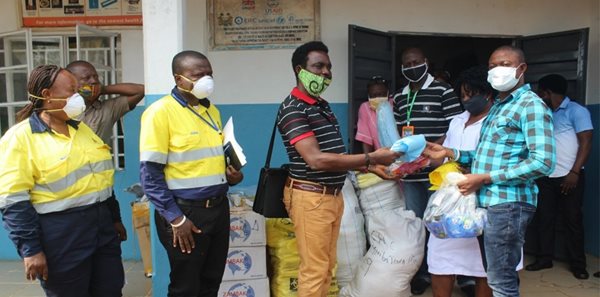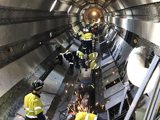Isolation from family and friends, shift work, fly-in/fly-out and drive-in/drive-out rosters, relationship or financial stresses, job insecurity, misuse of alcohol and drugs, environmental extremes and dangerous workplaces can and do contribute to compromised mental health. Recognising this, and following the release of the code of practice for ‘Mentally healthy workplaces for fly-in/fly-out workers in the resources and construction sectors’ in 2019, the Jacinth-Ambrosia health and safety team conducted a gap analysis review of its health and wellbeing program against the code. The review identified opportunities for improvement in the wellbeing program, particularly the provision of mental health information and training.
Jacinth-Ambrosia identified a new long-term wellbeing program, which was rolled out at the Jacinth-Ambrosia site in October 2019, coinciding with World Mental Health Day. The aim of the program is to ensure all staff and contractors are provided with knowledge and awareness on how they and their families can maintain good mental health at work and at home, how to recognise early symptoms, support each other and importantly, understand how and where to get help. The program encourages everyone to take responsibility for their own mental health by talking to someone and seeking help early.
The program has resulted in a more harmonious operating environment on site, with an improved overall level of mental health and wellbeing amongst personnel. This has been particularly evident through the resilience and sustained high morale on site during the challenges of the COVID-19 pandemic. Workers have been more supportive of each other, as demonstrated by an increased participation in activities such as R U Okay Day, an increase in personnel using the Employee Assistance Program (EAP) hotline. Absenteeism has noticeably decreased, and workers are returning to site from rest and recuperation refreshed having suitably addressed the mental health needs of both themselves and their families.
Contractors have provided similar positive feedback towards Iluka, and have expressed their thanks for including their staff in the mental health awareness program.
The results attained by this program at Jacinth-Ambrosia have provided momentum for other Iluka operations to commence roll out of this or similar programs, and it has also been a significant factor in Iluka’s development of a corporate mental health group within the company.



























